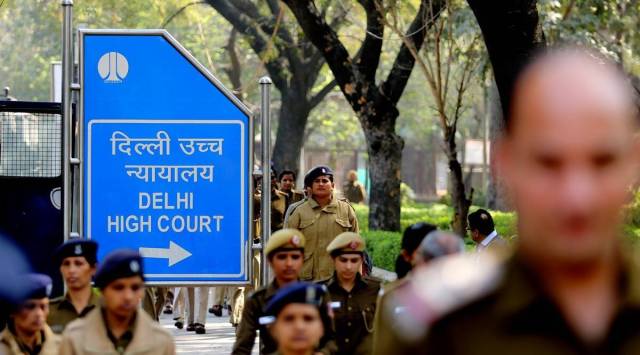Pernod Ricard India’s plea against rejection of liquor license ‘not maintainable’: Delhi HC
The High Court also clarified that since the plea is dismissed due to "non-maintainability" it has not gone into the merits of the parties' contentions.
 The Delhi High Court has ruled that Pernod Ricard India's plea against rejection of liquor license is ‘not maintainable’. (Express photo)
The Delhi High Court has ruled that Pernod Ricard India's plea against rejection of liquor license is ‘not maintainable’. (Express photo) Observing Pernod Ricard India’s (PRI) plea against the order dismissing its L-1 license application is “not maintainable”, the Delhi High Court Tuesday permitted the company to approach the Appellate Authority under the Excise Act against the rejection.
PRI had approached the High Court earlier this year and the court had on March 29 asked the Delhi Government’s Excise Department to take a decision on the company’s L-1 license application. Subsequently, on April 13 the Office of the Commissioner of Excise, Entertainment and Luxury Tax (licensing authority), of the Delhi Government rejected PRI’s application after which it moved the HC again.
An L-1 License application is an application for a “wholesale vend of Indian liquor license” which is granted by the Excise Department.
A single-judge bench of Justice Prathiba Singh in its order observed the order passed by the Office of the Excise Commissioner and signed by the deputy commissioner (excise) is appealable under the Excise Act, 2009. The court also said the order under challenge itself says PRI has the liberty to file an appeal.
“The Petitioner can seek a hearing before the Appellate Authority which can go into factual and legal issues…Therefore, the question of whether or not the Petitioner is entitled to the grant of L-1 license under the provisions of Excise Act, 2009, and Rules therein is left open to be decided by the Appellate Authority,” the HC said.
“This Court, accordingly holds that the present writ is not maintainable in view of the express statutory provision which permits the Petitioner to approach the Appellate Authority against the impugned order dated April 13, 2023, in terms of Section 72 of the Excise Act, 2009,” the HC said.
It directed that PRI is permitted to approach the Appellate Authority under the Excise Act, 2009 by filing an appeal within two weeks. It said if such an appeal is filed it won’t be dismissed on the ground of delay. It added if PRI seeks an oral hearing the Appellate Authority shall grant it and the order should be passed within one month of the hearing.
The High Court also clarified that since the plea is dismissed due to “non-maintainability” it has not gone into the merits of the parties’ contentions. “The remedies of the Petitioner in accordance with law and to raise all grounds available to it are not foreclosed,” it added.
The High Court also observed that the licensing authority had considered certain documents, including the CBI FIR and chargesheet in the excise case, which revealed a “stark situation”.
“The allegations made therein against the Petitioner and its employees are serious and cannot be dismissed outrightly as the same are relevant to the liquor business of the Petitioner and thus is directly connected to the Excise licence… Admittedly, the Petitioner or any of its employees have not been convicted of any offence punishable under this or other relevant Acts… While it can be argued by the Petitioner that it cannot be blamed for any unauthorised conduct of its employees, such an argument has not been placed before this Court,” it said.
“In the case of a corporate entity like the Petitioner, whose employees are not claimed to have acted in their individual capacity and continue to remain in the employment of the Petitioner, the said allegations could not have been brushed aside by the Licensing Authority. Moreover, the allegations also reveal that the employees represented themselves to be acting for Pernod Ricard. The allegations go to the root of good corporate governance of a company like the Petitioner,” the HC noted.







